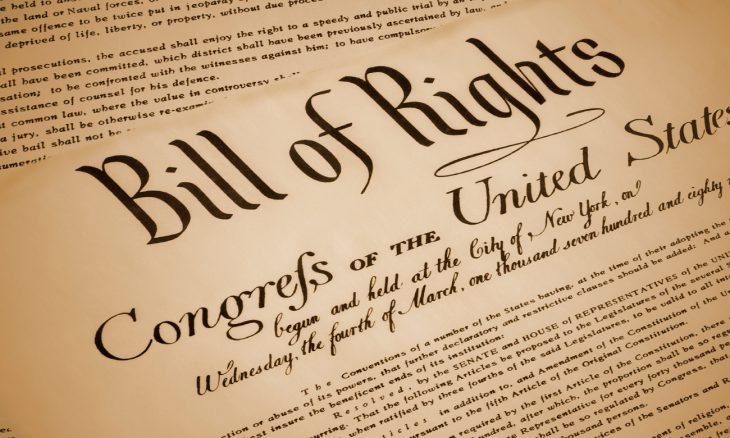This is the fourth of thirteen issues selected by our members and resulting from a nationwide faith and values study called Vital Signs.
Each week, we will cover a new topic with in-depth insights and biblical perspective in order to encourage, equip, and inspire praying Americans leading up to the 2020 Election.
Is the era of religious freedom coming to an end?
Religious freedom guaranteed under the United States Constitution is an ideal that believers greatly value. People of all faiths can meet and share their beliefs without repercussions. At least, that’s what the Constitution is meant to provide. However, as modern culture clashes with Bible teachings, religious freedom is being oppressed in the name of antidiscrimination. As laws come down against Christian expression, believers feel the squeeze of persecution. Lawsuits are on the rise against churches who display the nativity scene, bakers who refuse to bake cakes for same-sex weddings, and even employees who post scripture or wear religious symbols. Christians all over the world have suffered severe religious persecution and many wonder if they will see the same abuse and mistreatment in the United States.
Prevailing Worldviews
Religious Freedom
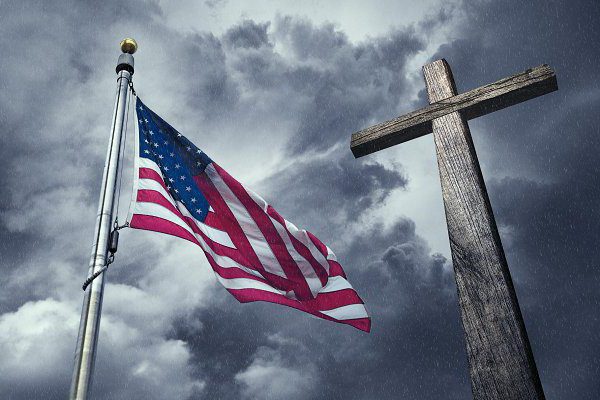
In the Bill of Rights of the Constitution, Amendment 1 states, “Congress shall make no law respecting an establishment of religion, or prohibiting the free exercise thereof; or abridging the freedom of speech, or of the press; or the right of the people peaceably to assemble, and to petition the Government for a redress of grievances.”
The American Civil Liberties Union (ACLU) says about Amendment 1, “Our country’s founders…created the First Amendment to guarantee the separation of church and state….The Establishment Clause…prohibits government from encouraging or promoting (“establishing”) religion in any way…The public schools… can teach about the influences of religion in history, literature, and philosophy — they can’t promote religious beliefs or practices as part of the curriculum.”
Dr. Robert Jeffress of the First Baptist Church in Dallas, Texas, says that “separation of church and state” is not in the Constitution, but that the establishment clause has been misconstrued. It was intended to prevent there being a government-run religion like there was in other countries. It was not meant to silence people of faith in schools and public places, otherwise, religion wouldn’t have been openly taught to school children until the 1960s when the current ideas of separation of church and state became popular.
Following recent decisions by the U.S. Supreme Court, an opinion writer in The Washington Post said the Supreme Court wants religious Americans—and those who disagree with them—to decide for themselves how they are governed and what they believe. Referencing those same decisions, a writer for the Long Island Catholic said, “We must continue to be vigilant for religious freedom.”
Religious freedom does not extend to Christians only. Unfortunately, anti-Semitism is on the rise, not only around the world, but also in the United States.
History teaches that prejudice toward any religious group is not easily contained, but can quickly spread.
Protection of Christian Heritage
The banning of the nativity scene, the Ten Commandments and anything Christian in public concerns believers across America. Advocates for Faith and Freedom say, “Sadly, we expect a more widespread attempt to ‘cleanse’ our Christian heritage from our schools, government, and everyday life as the Culture War rages on…Our founding fathers established freedom of religion not freedom from religion. We should be allowed to integrate our religious beliefs into all aspects of our life, but we have seen the exact opposite happen in our culture – as we are stripped of our right to practice Christianity in our daily lives.”
Authors London and Siddiqi argue that the “religious right” is being favored to the detriment of other religions and minority groups. These writers, who are with the Faith and Progressive Policy Institute at the Center for American Progress, argue against laws that protect Christians from acting against their conscience, such as performing abortions. They state, “If policymakers do not ensure that religious liberty protects the free exercise of religion for all Americans, it will continue to be weaponized as a tool for discrimination and political gain and weaken nondiscrimination protections. Religious liberty must include everyone; it should not be a tool to ensure that only a specific set of religious beliefs and communities are prioritized above others.” When asked about attacks on statues and monuments in recent weeks, including attacks against churches and synagogues also, art historian Ervin L. Thompson, a professor of the John Jay College of Criminal Justice, said, “The current attacks on statues are a sign that what is in question is not just our future but our past, I think, as a nation, as a society, as a world.”
Global Persecution
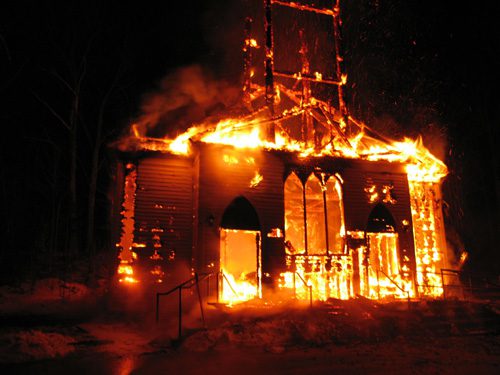
Open Door, a ministry started by Brother Andrew, supports persecuted Christians in 60 nations. They maintain a World Watch List that rates the severity of persecution in each of the countries. “In the top 50 World Watch List countries alone, 260 million Christians in the world experience high levels of persecution for their choice to follow Christ.” They estimate that one in nine Christians worldwide suffer persecution. Nearly 3,000 Christians on the top fifty World Watch List were killed for their faith in 2019, 9,488 church buildings were attacked, and 3,711 Christians were detained without trial, arrested, sentenced, and imprisoned.
The BBC quotes a report ordered by Foreign Secretary Jeremy Hunt, “The persecution of Christians in parts of the world is at near genocide levels.” The articles stated, “Mr. Hunt said he felt that ‘political correctness’ had played a part in the issue not being confronted.” Colonization and controversial works of missionaries were cited as reasons people may feel uncomfortable in talking about this serious issue. However, the 2019 Easter Sunday attacks in Sri Lanka which killed 250 people and wounded 600 in churches and hotels served as a wake-up call.
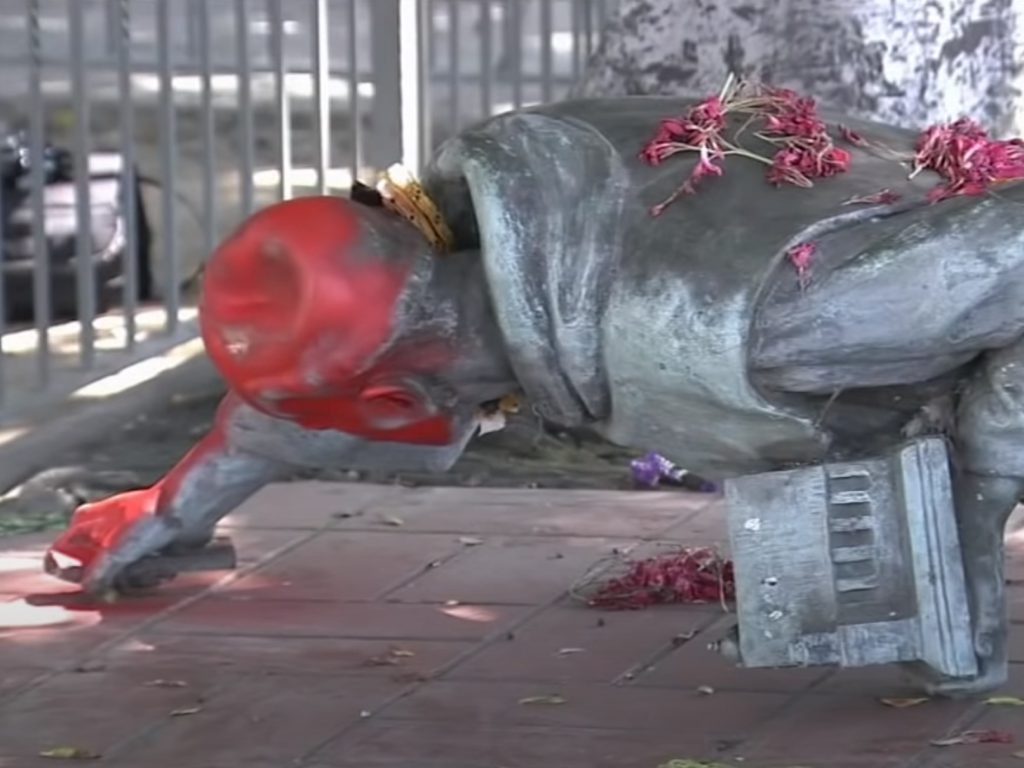
Some wonder if global persecution will come to the United States. Oftentimes around the world, attacks on religious groups begin with the destruction of symbols and places of worship. As recently as mid-July 2020, churches were being vandalized, a statue of Jesus was decapitated and knocked off its pedestal, while arsonists have set fire to churches, cathedrals and synagogues as protests by anarchists continue unabated.
Shaun King, the controversial Black Lives Matter activist known for making false claims, said of statues of Jesus and Christian churches, “Tear them down!” He said they are forms of “white supremacy” and “racist propaganda” that promote “oppression.” He added, “The statues of white Europeans they claim is Jesus should … come down. … In the Bible, when the family of Jesus wanted to hide, and blend in, guess where they went? Egypt! Not Denmark.”
What the Bible has to say:
Religious Freedom
In Hated Without Reason, author Patrick Sookhdeo states, “The Bible shows us that freedom is rooted in God’s nature and in His dealings with human beings.” Sookhdeo went on to say that God governs the world in wisdom, truth and love, and human beings are to treat each other in the same way.
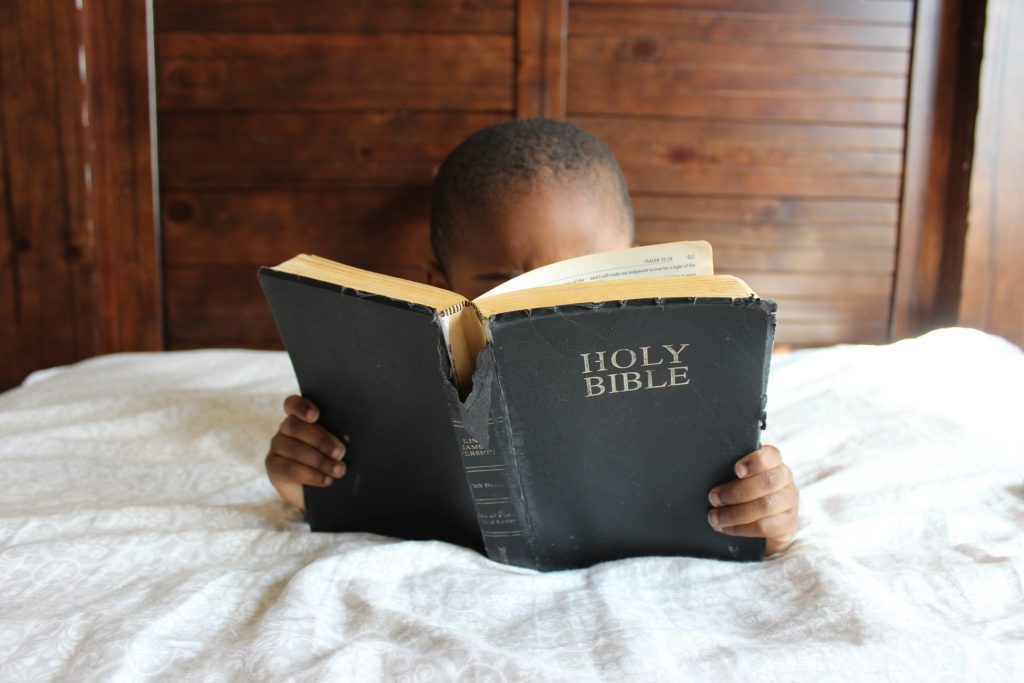
It is the responsibility of God’s people to treat others, no matter what they believe, with dignity and respect. Jesus taught that the two greatest commandments were to love God and others (Matthew 22:36-40). He said to treat others like you want to be treated, and specifically to love your enemies (Mathew 7:12, 5:44).
Throughout Biblical history, each individual from Genesis to Revelation had a choice to follow God or not. “Whoever will” is in the Bible 181 times. There are mild to severe consequences for not doing things God’s way, but it’s always a choice.
Protection of Christian Heritage
Memorials and symbols of faith are also God’s idea for present and future generations. Many times during the Israelites sojourn from Egypt to the Promised Land, God told them to make memorials lest they forget how He rescued them…memorials such as piling up rocks from the Jordan River (Joshua 4). There were many types of memorial offerings such as grain, feasts, and writings. The Ark of the Covenant contained reminders of significant moments in Israel’s history (Hebrews 9:4). In Acts, God took note of Cornelius’s prayers and offerings to the poor as a memorial offering (Acts 10:4).
Jesus instituted the Lord’s Supper, wine and bread symbolizing His sacrifice to remember him by (Matthew 26:26-29). Baptism symbolizes the death, burial and resurrection of Jesus and the believer’s death to himself, commitment to a new life, and the promise of eternal life (Colossians 2:11-12).
Global Persecution
Sadly, the history of God’s people is one of persecution. The Old Testament prophets repeatedly got into trouble for proclaiming the Word of the Lord. Jesus lamented, “O Jerusalem, Jerusalem, the one who kills the prophets and stones those who are sent to her! How often I wanted to gather your children together, as a hen gathers her brood under her wings, but you were not willing!” (Luke 13:34).
Hebrews 11 lists what God’s people did by faith. Many received miracles and answers to prayer. However, as Hebrews 11:35-38 says, “Some were tortured, refusing to accept release, so that they might rise again to a better life. Others suffered mocking and flogging, and even chains and imprisonment. They were stoned, they were sawn in two, they were killed with the sword. They went about in skins of sheep and goats, destitute, afflicted, mistreated—of whom the world was not worthy—wandering about in deserts and mountains, and in dens and caves of the earth.”
Jesus warned his disciples, “If they persecuted Me, they will also persecute you. If they kept My word, they will also keep yours. But all these things they will do to you on account of my name, because they do not know Him who sent Me” (John 15:20-21).
Jesus teaches how his followers should view persecution. “Blessed are you when others revile you and persecute you and utter all kinds of evil against you falsely on my account. Rejoice and be glad, for your reward is great in heaven, for so they persecuted the prophets who came before you” (Matthew 5:11-12).
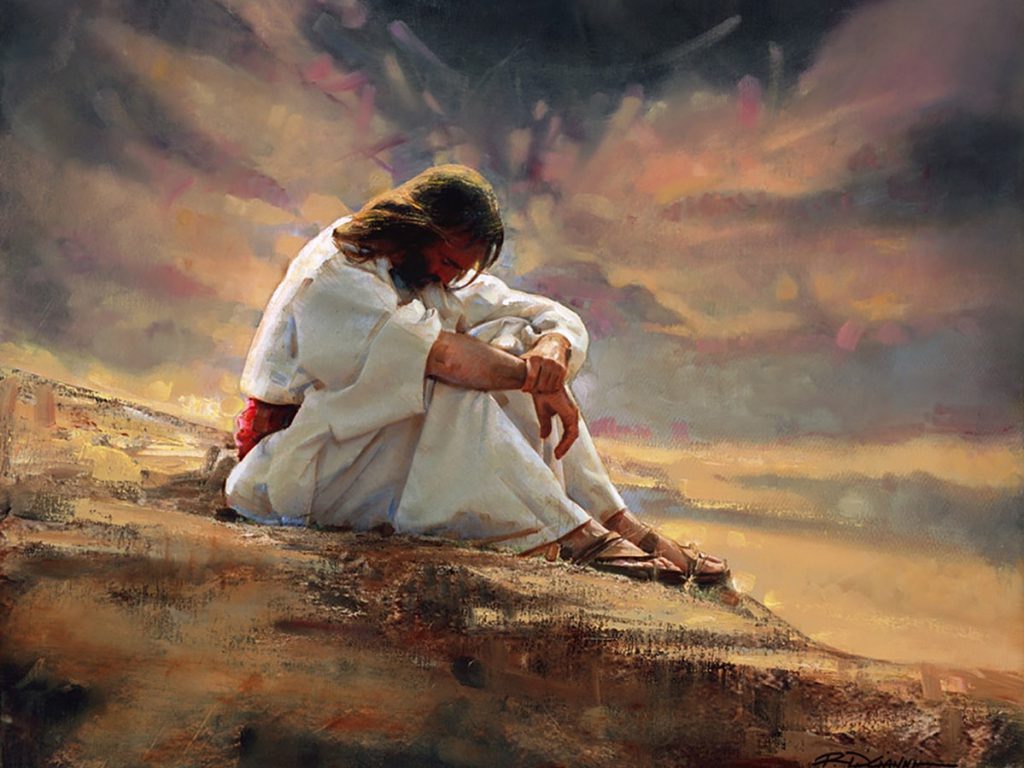
Jesus warned his disciples, “They will put you out of the synagogues. Indeed, the hour is coming when whoever kills you will think he is offering service to God” (John 16:2).
Paul warns, “Indeed, all who desire to live a godly life in Christ Jesus will be persecuted” (2 Timothy 3:12).
Jesus describes the end times in terms of wars, natural disasters, and persecution, and teaches believers how to prepare. “But stay awake at all times, praying that you may have strength to escape all these things that are going to take place, and to stand before the Son of Man” (Luke 21:36).
PRAYER POINTS
- Pray that religious freedom and freedom of speech guaranteed by the First Amendment in the Bill of Rights will be properly interpreted and carried out.
- Be watchful and pray for the nation’s leaders as they pass laws and resolutions which may affect your religious freedom or freedom of speech and let your voice be heard with your vote.
- Pray for wisdom in voting for specific politicians and, with God-given discernment, research what each of them stands for.




